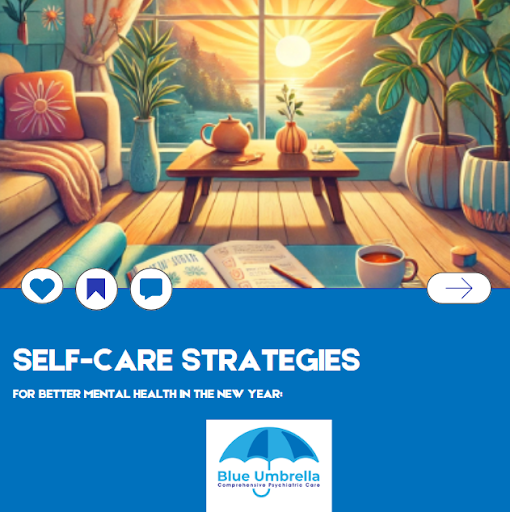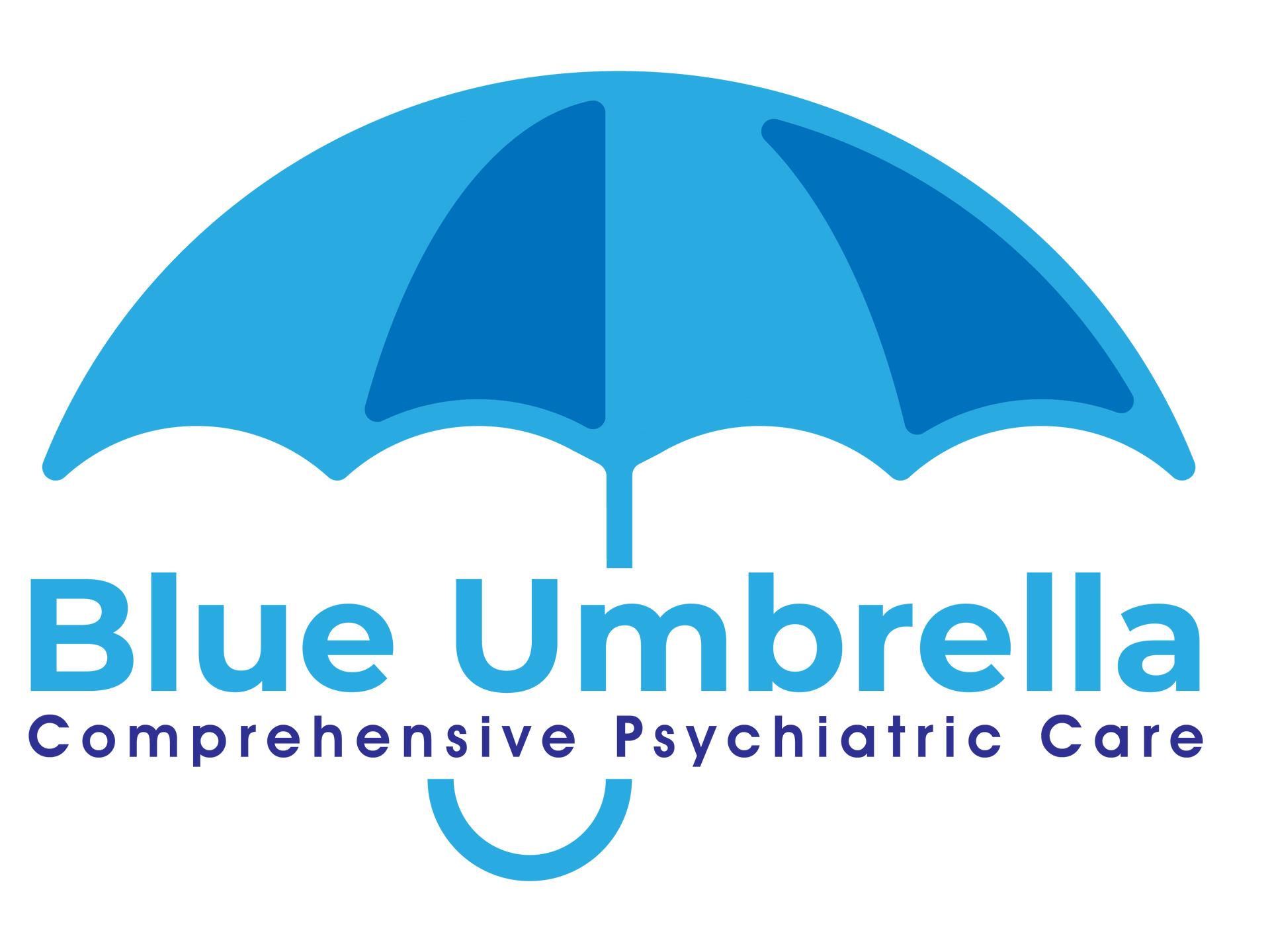
As we step into a new year, many people set goals to improve their physical health, but it's equally important to prioritize mental health. Self-care is a powerful tool that complements professional treatment and can lead to long-term improvements in mental wellness. Here at Blue Umbrella Psychiatry, we believe in a holistic approach to mental health, which combines therapy, medication management, and healthy lifestyle habits. Below are practical self-care strategies that can help you navigate the year ahead with a stronger mind and a clearer sense of well-being.
1. Manage Stress Effectively
Stress is a normal part of life, but chronic stress can take a toll on your mental health. One of the best ways to manage stress is to identify what causes it and find healthy ways to cope. Here are a few stress management tips:
- Breathing exercises: Deep breathing techniques, such as diaphragmatic breathing, can help calm your nervous system and reduce the physical symptoms of stress.
- Time management: Break large tasks into smaller, manageable steps to avoid feeling overwhelmed. Prioritize your tasks and set realistic deadlines to maintain a sense of control.
- Limit stressors: If possible, minimize exposure to negative situations or people that cause unnecessary stress. Create boundaries where needed to protect your peace of mind.
2. Practice Mindfulness
Mindfulness is the practice of staying present and fully engaged in the moment without judgment. It can improve emotional regulation, reduce anxiety, and promote overall mental wellness. Here’s how you can incorporate mindfulness into your daily routine:
- Meditation: Start with just a few minutes each day. Focus on your breath, and let go of any distracting thoughts. Apps like Headspace or Calm can be great resources for guided meditation.
- Mindful walking: Take a walk outside, paying attention to the sights, sounds, and smells around you. This simple practice can help clear your mind and reduce stress.
- Mindful eating: Pay attention to the taste, texture, and smell of your food. Eat slowly and savor each bite, which can help you develop a healthier relationship with food and improve digestion.
3. Maintain a Healthy Routine
Establishing a healthy routine is key to nurturing both your body and mind. This routine doesn't have to be rigid, but consistency is important. Here are some tips for a balanced daily routine:
- Get enough sleep: Sleep is crucial for mental and emotional health. Aim for 7-9 hours of sleep each night. Create a calming bedtime routine to help you wind down, such as reading or taking a warm bath.
- Exercise regularly: Physical activity has been proven to reduce anxiety and depression. Whether it’s a morning jog, yoga, or dancing to your favorite music, find an activity you enjoy and make it part of your routine.
- Eat a balanced diet: Nutrition plays a significant role in your mental health. Include plenty of fruits, vegetables, whole grains, and lean proteins in your diet. Limit processed foods, sugar, and caffeine, which can affect mood and energy levels.
4. Connect with Others
Social connections are vital for maintaining mental health. Make time to nurture relationships with family, friends, and loved ones. Talking to someone you trust can help reduce feelings of loneliness, increase feelings of belonging, and provide emotional support.
- Reach out: If you’re feeling isolated, don’t be afraid to reach out for support. Whether it’s a phone call, video chat, or in-person visit, connecting with others is a powerful way to combat negative feelings.
- Join group therapy: If you're seeking additional support, group therapy can be a great option. It provides a safe space for sharing experiences and gaining insight from others who may be facing similar challenges.
5. Make Time for Joy
In the hustle and bustle of daily life, it’s easy to forget to make time for things that bring you joy. Whether it’s a hobby, a creative pursuit, or simply relaxing, these activities contribute to overall well-being and mental health.
- Pursue hobbies: Engage in activities that bring you joy and fulfillment, such as reading, painting, playing an instrument, or gardening.
- Do something spontaneous: Whether it’s a weekend trip, a spontaneous dinner with friends, or a new adventure, try to step outside your routine every once in a while to recharge.
Self-care isn’t just about taking time off or pampering yourself—it’s about creating healthy habits that nurture your mind and body in a sustainable way. By practicing these self-care strategies, you’re complementing the treatment you may already be receiving, whether through therapy or medication management. At Blue Umbrella Psychiatry, we’re here to support you on your journey toward mental wellness. Reach out to us to learn more about how we can work together to create a comprehensive care plan that includes both professional treatment and self-care strategies.













